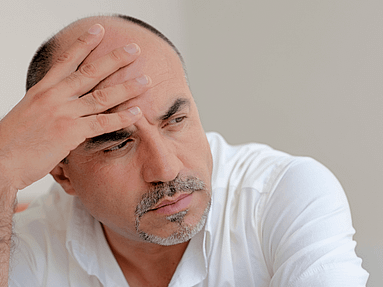All of us have experienced anxiety at different times and in different levels.
I might find myself getting very anxious about major changes in life, new events, new places or new people. I might also find myself getting anxious about day-to-day happenings and seemingly normal events where my perceptions about other people’s reactions might cascade turbulent anxiety.
How do I know that there is anxiety?
Because my body tells me so. The human body is so intelligent that it begins flashing signals as soon as anxiety starts to creep in. I may find my heart pounding, my palms sweaty and/or I might find myself moving agitatedly. And there are many other signals that the body gives which varies from person to person.
You may say that when I got up today morning, I was feeling really good, but then later towards the day I suddenly started to feel anxious. I have no clue what had happened. This is a common story. It may feel as if nothing had happened to cause anxiety but in reality, all of us have conscious and subconscious triggers that make us anxious.

Maybe it is my first public presentation that triggers me and makes me anxious or the upcoming driving test. Or maybe I am getting anxious thinking about starting the new job or even visiting family. Maybe I am ruminating about how when I visited my family the last time, they judged me about my choices. Very often, thoughts can trigger a lot of anxiety and can even lead into a panic attack if not managed.
It is also common for many of us to label our anxieties under the broad category ‘stress’ and write it off saying ‘this is only stress and stress has become a part of my life’.
In such a situation, I would urge you to go deeper into your stress and identify what kind of stress is it. If it is anxiety and you are able to identify it as anxiety, that will help you understand yourself, understand your anxiety and also help you deal with it even better.
That brings us to the million-dollar question.
How can I manage my anxiety?
When I work with my clients, I use the E-U-C approach, where:
E — Education
U — Understanding and
C– Control
These three steps encompass the hope stage, the acceptance stage, and the empowerment stage.
Feel free to read more about this approach here. (Link: https://thehealinggym.com/anxiety-coaching/)
 It is important for us to feel hopeful about managing our anxiety. If we don’t have hope, we might start feeling anxious about anxiety itself. We can also become dispirited and that may lead us towards depressive thoughts. Hope is vital and a precursor for all anxiety management.
It is important for us to feel hopeful about managing our anxiety. If we don’t have hope, we might start feeling anxious about anxiety itself. We can also become dispirited and that may lead us towards depressive thoughts. Hope is vital and a precursor for all anxiety management.
It’s also important that we don’t push our anxieties under the carpet and pretend that we are not anxious. We need to accept what is going on and come to terms with our feelings. This will help us understand ourselves and our anxiety much better. Understanding helps us move closer to learning anxiety management.
Understanding and acceptance is a vital part of the process and the combination of both hope and understanding can lead us into empowerment. In this stage we learn and practice active techniques that can help to move us out of the ‘anxious zone’. Empowerment gives us the impetus to manage our anxieties, reduce its frequency and intensity and become more and more anxiety free.
In the next few weeks, I will be sharing more information about anxiety and share resources to manage it and through all of this, give you some snapshots of the EUC model as well. Stay tuned for more articles.
Take care and remember that no matter what is going on, you are bigger than all of it.
